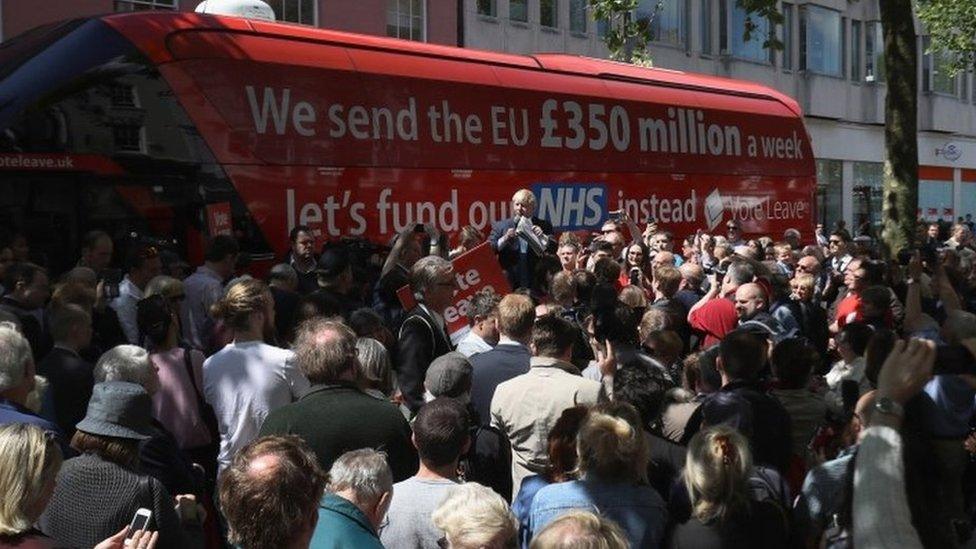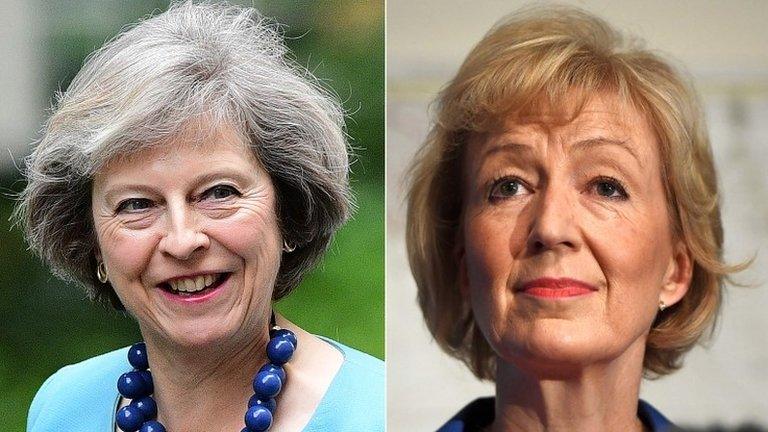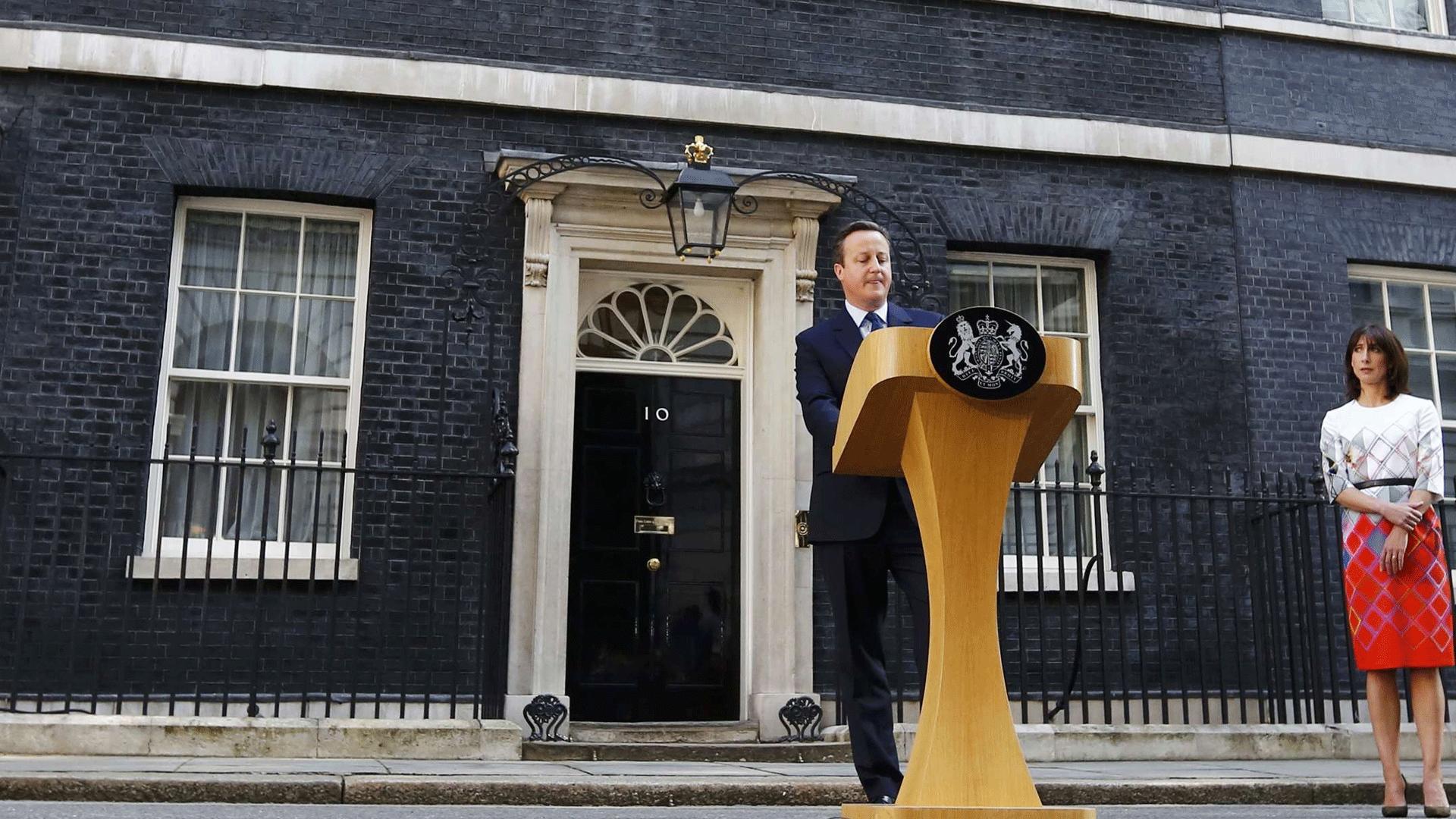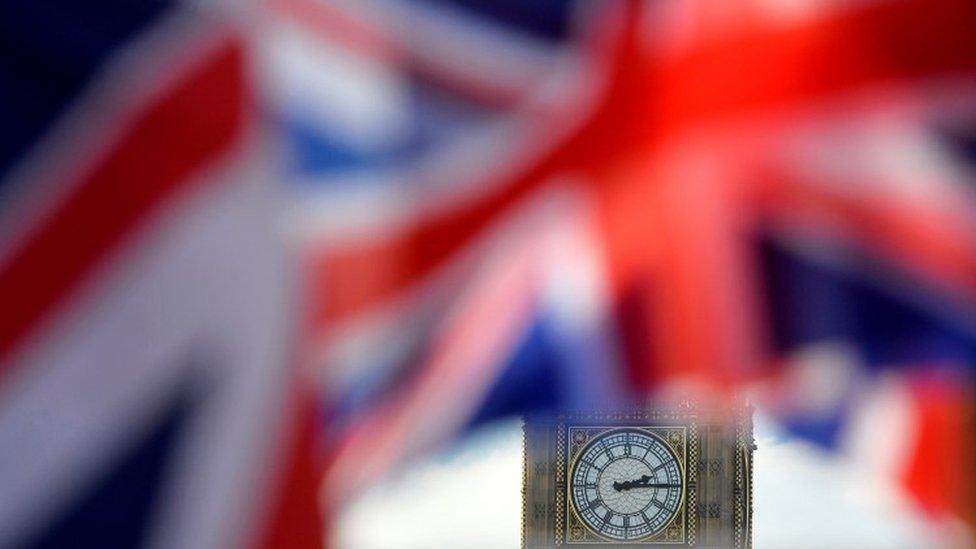Brexit: New PM 'should come from Leave camp'
- Published
New PM "must be Leave supporter" - Iain Duncan Smith MP
The new prime minister should only come from the Leave camp, ex-Conservative leader Iain Duncan Smith has said.
He told the BBC's Andrew Marr show it would be "very difficult" for a public who voted to leave the European Union to have a leader who had opposed this.
PM David Cameron announced on Friday that he would step down by October.
He had urged the country to vote Remain in Thursday's referendum, but the Leave campaign won by 52% to 48%.
Since Thursday's vote there has been intense speculation about who will replace Mr Cameron, and when and how the UK will begin formal negotiations to exit the EU.
Leadership hopefuls
Meanwhile, potential leadership contender Boris Johnson has been meeting with Conservative MPs Jake Berry and Ben Wallace at his home.
The BBC understands he also met with justice secretary and fellow Leave campaigner Michael Gove.
Several sources have told BBC political editor Laura Kuennsberg that Mr Gove will co-chair Mr Johnson's leadership campaign, if he runs.
Mr Johnson, who is widely expected to announce his leadership bid in the coming days, plans to run on a "unity" ticket, with a prominent Remainer part of the campaign leadership, our editor said.
Meanwhile, Home Secretary Theresa May has been canvassing opinion among MPs and is expected to announce her leadership bid in the next couple of days.
Our political editor said there was a growing sense among Tory MPs that only two or three names will enter the leadership contest because it is about choosing the next prime minister, rather than a wide field that would be narrowed down by the Parliamentary party.
International Development secretary, Justine Greening, suggested today that Boris Johnson and Theresa May should come to a deal rather than having a drawn out contest at all.
'Come together'
Mr Duncan Smith, who campaigned for Leave, said: "The government itself now had a view... which was to remain, and so now we need to change that position and actually deliver on this very clear mandate from the British people."
He said he was "incredibly sad" Mr Cameron had chosen to go as he wanted him to "remain to help stabilise the situation and get us moving".
"But I do think it would be very, very difficult for the public who have voted for leaving the European Union to find that they then had a prime minister who actually was opposed to leaving the European Union.
"So I think it is quite clear that - at least the leadership end of it - but I would like all the others, Remain and us, to come together."
Mr Duncan Smith also ruled himself out of the future Conservative leadership contest.

Boris Johnson is the bookies' favourite to be the next occupant of 10 Downing Street
He said the House of Commons had "an obligation to deliver on the British people's verdict" and progress with leaving the EU.
"The Conservative party is in a majority in the House of Commons and my view about this is there are also a number of Labour MPs who are very clear they want this to be delivered on," he said.
'Get control'
When questioned about the Leave campaign's assertion that leaving the EU would free up £350m a week extra to spend on the NHS, Mr Duncan Smith said the NHS would receive "the lion's share".
"It is not a promise broken, I never said that during the course of the election," he said.
"What I said was we would be able to spend the lion's share of that money, now the government is now able to spend, so people can say that there is more money available now for the NHS, categorically more, which is what's required and that's the key point."
Asked if UKIP leader Nigel Farage - a key Leave figure - would be involved in the cross-party exit negotiations with Brussels, Mr Duncan Smith suggested the party's sole MP Douglas Carswell would be consulted.
"There is a UKIP MP who is part of that process in a parliamentary sense, and I'm very happy to discuss... with UKIP about what their expectations are, but the government itself, right now, actually dictates how this will happen," he said.
'Control of borders'
On immigration, he said the Conservative government had to honour its manifesto pledge to bring net migration - the difference between the number of people coming to the UK for at least a year and those leaving - down to below 100,000.
Mr Duncan Smith said: "I said consistently throughout that we need to get control of our borders and the only way to do that is to leave the European Union…
"Once we do that we are in a much stronger position to achieve that objective of bringing down migration to tens of thousands within this Parliament - I will stand by that."
- Published8 July 2016

- Published26 June 2016
- Published24 June 2016

- Published29 June 2016
